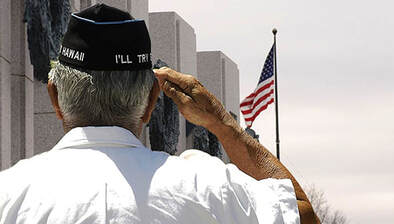all of the selves we Have ever been
 I have been thinking of Charles Dickens, the great English novelist of the Victorian era, and the opening line to his most famous novel, A Tale of Two Cities: It was the best of times, it was the worst of times, it was the age of wisdom, it was the age of foolishness, it was the epoch of belief, it was the epoch of incredulity, it was the season of Light, it was the season of Darkness, it was the spring of hope, it was the winter of despair… He wrote those words in 1859, but it could have been this morning. We have high speed technology and millions of social media connections, but we must live in isolation from one another, keeping our social distance from even our grandchildren. We have science that has revolutionized health care. We can take a heart from one human being and set it to pumping inside another, but there is no PPE to be found. We have placed our faith in capitalism. Money is our God, but we find ourselves with neither jobs nor income. We experience the warmth of kindness from so many generous souls delivering groceries and sewing face masks, and yet, other souls are ablaze with outrage and contempt. They are armed with handguns and ak-47 rifles. We pray that it is a spring of hope after our winter of despair. Today, I think of those identified as most “vulnerable” during this pandemic, the men and women who are 65 and older with underlying health conditions. The oldest among them are the last surviving members of the Greatest Generation. They were born in the worst of times. They survived the economic collapse known as the Great Depression. Some were orphaned or abandoned as children as their families faced starvation and homelessness. As teenagers of 14 and 15, they signed up to fight the Nazis and fascism during World War II. So strong was that generation’s conviction to serve their country that some killed themselves if rejected for military service. These men and women who survived loss, famine, war, epidemics, a holocaust, fascism, and the tyranny of Stalin built the post-war world and gave birth to the next generation, the Baby Boomers, who, because of the contributions of the Greatest Generation, were born into the best of times. Perhaps, they all will now leave this world in this, the new worst of times. The virus will not be what makes this the worst of times, the season of despair. The worst will be if we begin to choose who will be sacrificed for the sake of the economy. Is this what we have come to? The Greatest Generation lived through years of hell. In a few short weeks, some among us are prepared to sacrifice them for a haircut, a tattoo, or a day at the beach. If we deliberately allow this virus to take our elders, we are no kinder than cannibals, no better than Hitler. There was no point in winning that horrible war. Hitler defined who was worthy and who was not, who should be eliminated and who should survive. He did away with the elderly, the sick, children—all were vulnerable to elimination. The Greatest Generation has already given us a prosperous economy. They gave from the orphanages. They gave from the dust bowl. They gave from the trenches of Europe, Asia, the South Pacific, and Africa. They gave from the front lines and at home on the assembly lines. They gave from the victory gardens and the coal mines. They gave us the roads and bridges we drive on and the parks we long to hike. They gave at the office, and they gave at church. Some say we should open the economy and leave it in God’s hands. God has already weighed in. He gave us minds and hearts. He created us in His image, and then He set us free. When He granted us dominion over the earth, He made us protectors of all creation. We have been careless. Maybe this virus is a second chance. I think of a lesson from an aging Holocaust survivor. He was a school boy when he and his family were transported to a concentration camp. He and his father were able-bodied for work. When they stepped off the transport train, father and son were ordered to step to the right. This man’s mother and younger siblings were directed to step to the left, and they soon perished in the gas chambers. In his old age, this Holocaust survivor believed he would see his mother and siblings again in Heaven, but he dreaded the reunion. He felt shame and guilt for having survived when his loved ones had perished. “How will I answer to them?” He had lived horrors unimaginable, and not for days or weeks, but for years. He had been a vulnerable child. He had no choices, no power. This survivor could not even look forward to heaven so tormented was he despite the passage of 70 years. Is that the agony we leave to our children and to the future if we dismiss the value of our aging loved ones? If we choose for them? Should the Greatest Generation and their children be allowed to perish as scapegoats for a virus-altered economy in an unprepared nation that lacks a coordinated national response? And who will be next if the virus and the economy fail to respond to our impatience and to our chaos?
0 Comments
Your comment will be posted after it is approved.
Leave a Reply. |
AuthorLilli-ann Buffin Archives
July 2024
Categories
All
|
 RSS Feed
RSS Feed